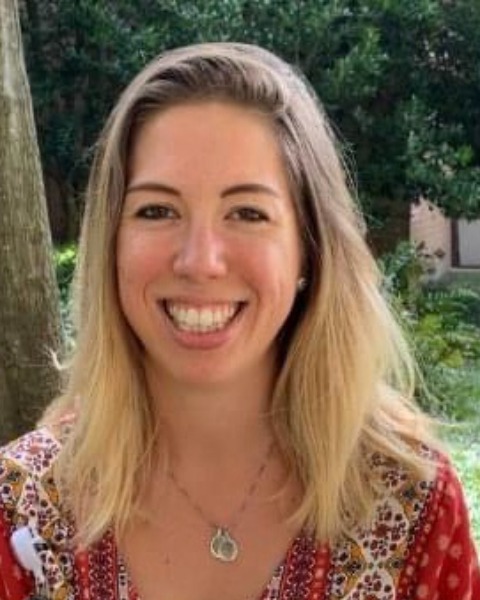Cannabis and the Older Adult: Benefits, Risks, and Implications for Practice in PALTC
1.00 CME / 1.00 CMD Management / 1.00 MOC
This session will address the controversial, growing topic of medical and recreational cannabis use in the older adult population. An overview of current legislation, PALTC regulations, and scholarly evidence will be presented with special attention to associated barriers or stigmas. Participants will be able to recognize the benefits of cannabis related to quality of life, pain management, behavioral symptoms, cognitive function, medication management, and more. Risks and mitigation strategies will also be explored. Before the end of the session, participants will be able to evaluate next steps in operationalizing medical or recreational cannabis use within their organizations.
Presenters
 Alexandria Hill, MSN, RN-BC, RAC-CT, QCP, CMDP, is the Director of Quality Management at Westminster Canterbury on Chesapeake Bay. Ms. Hill is also a regulatory compliance, performance improvement, and leadership development consultant with Chiles Healthcare Consulting, holds a Masters in Nursing Administration and Leadership and is currently pursuing her Doctorate of Nursing Practice at Virginia Commonwealth University. She began her career as a Licensed Practical Nurse and uses this experience to fuel her passion for professional development, shared governance, and interdisciplinary collaboration in PALTC.
Alexandria Hill, MSN, RN-BC, RAC-CT, QCP, CMDP, is the Director of Quality Management at Westminster Canterbury on Chesapeake Bay. Ms. Hill is also a regulatory compliance, performance improvement, and leadership development consultant with Chiles Healthcare Consulting, holds a Masters in Nursing Administration and Leadership and is currently pursuing her Doctorate of Nursing Practice at Virginia Commonwealth University. She began her career as a Licensed Practical Nurse and uses this experience to fuel her passion for professional development, shared governance, and interdisciplinary collaboration in PALTC.
Learning Objectives
- Recognize the role of the human endocannabinoid system (ECS) in maintaining homeostasis.
- Recall the basics of cannabinoid pharmacology.
- Investigate trends and barriers related to cannabis utilization that impact the older adult population and PALTC operators.
- Consider practical approaches for cannabinoids as medicine while discerning associated risks in the PALTC setting.
Credit Information
Activity Created 3/2022
Credits Available Until 3/2025
Credit Statements:
CME: AMDA – The Society for Post-Acute and Long-Term Care Medicine designates this enduring material for a maximum of 1.0 AMA PRA Category 1 Credit(s)TM. Physicians should only claim credit commensurate with the extent of their participation in the activity.
AMDA – The Society for Post-Acute and Long-Term Care Medicine for Post-Acute and Long-Term Care Medicine is accredited by the Accreditation Council for Continuing Medical Education (ACCME) to provide continuing medical education for physicians.
CMD: This self-study activity has been pre-approved by the American Board of Post-Acute and Long-Term Care Medicine (ABPLM) for a total of 1.0 management hours toward certification or recertification as a Certified Medical Director (CMD) in post-acute and long-term care medicine. The CMD program is administered by the ABPLM. Each physician should claim only those hours of credit actually spent on the activity.
ABIM Maintenance of Certification (MOC): Successful completion of this CME activity, which includes participation in the evaluation component, enables the participant to earn up to 1.0 Medical Knowledge MOC points and patient safety credit in the American Board of Internal Medicine’s (ABIM) Maintenance of Certification (MOC) program.
Participants will earn MOC points equivalent to the amount of CME credits claimed for the activity. It is the CME activity provider’s responsibility to submit participant completion information to ACCME for the purpose of granting ABIM MOC credit.
Visit the Continuing Education page for information on if and how you can claim credit/hours for AMDA’s education.
Disclosure Information:
The Society requires the disclosure of all speaker/faculty/planner’s relevant financial relationships; presence of off-label use of a device or medication; and discussion of any experimental, new or evolving topic prior to each accredited education activity.
If the learner perceives any bias toward a commercial product or service, advocation of unscientific approaches to diagnosis or therapy, or recommendation, treatment, or manners of practicing healthcare that are determined to have risks or dangers that outweigh the benefits or are known to be ineffective in the treatment of patients please report this to the Society’s staff.
All relevant financial relationships have been identified, mitigated, and resolved.
- The following AMDA Education Committee members have financial relationships to report: Diane Sanders-Cepeda, DO, CMD — UHC E&I Retiree Solutions: Full-Time Employee; all others have no relationships with ineligible companies.
- The speaker has no relevant financial relationships.
- AMDA staff have no relationships with ineligible companies.